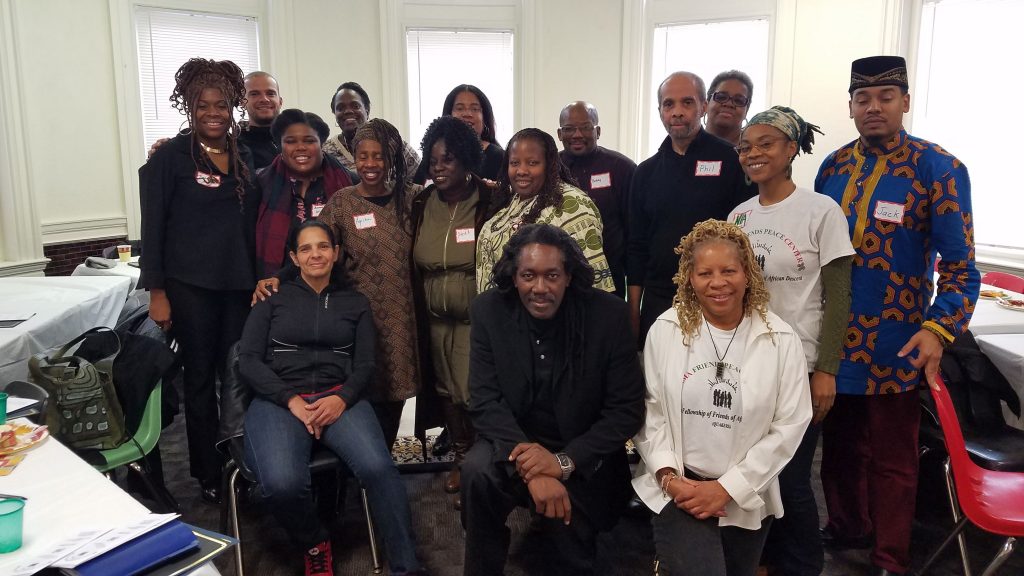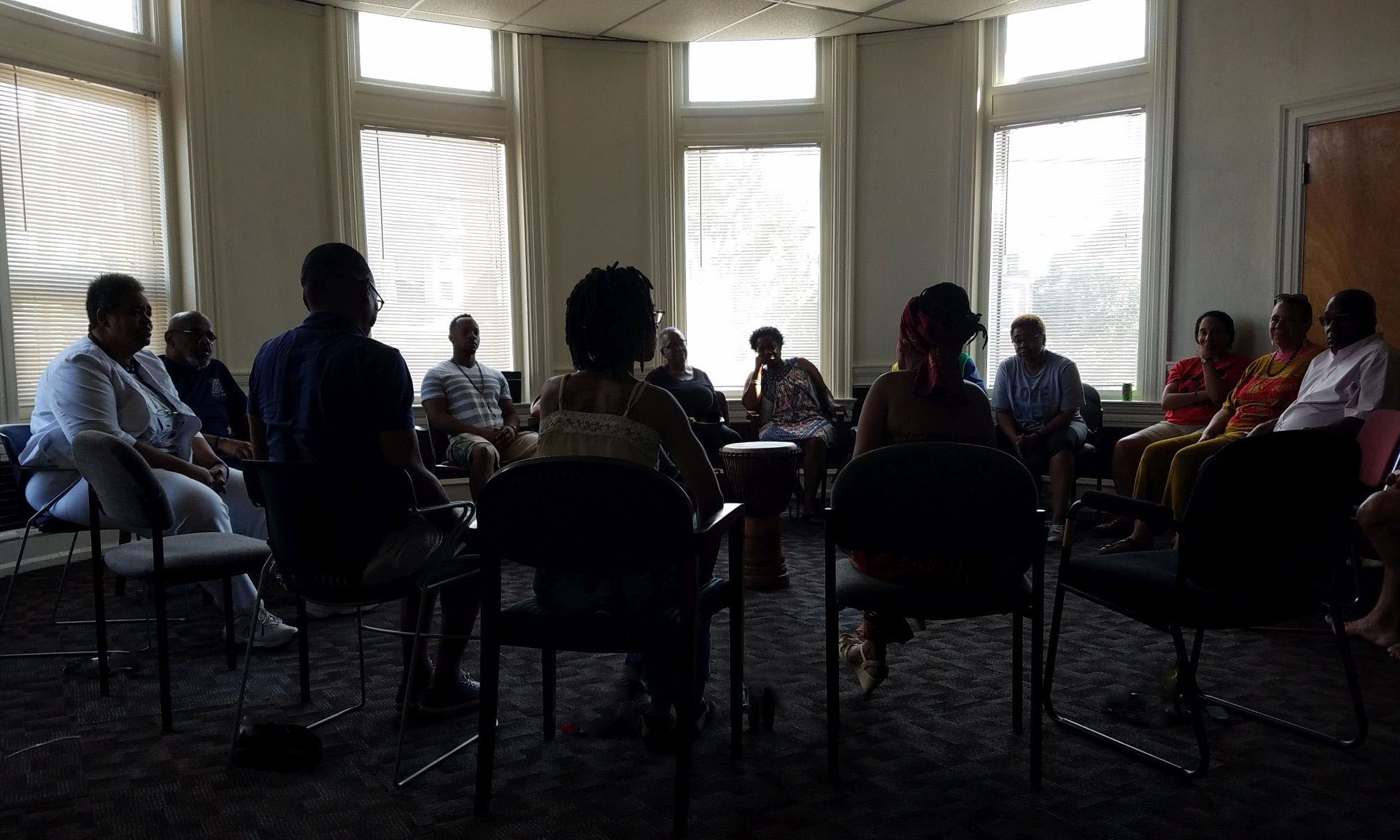The community-based activities of the Peace Center grow out of worship and are designed to reduce all forms of violence, while providing a haven with educational, cultural and recreational opportunities for families. The activities of the center are as follows:
2022 Programs
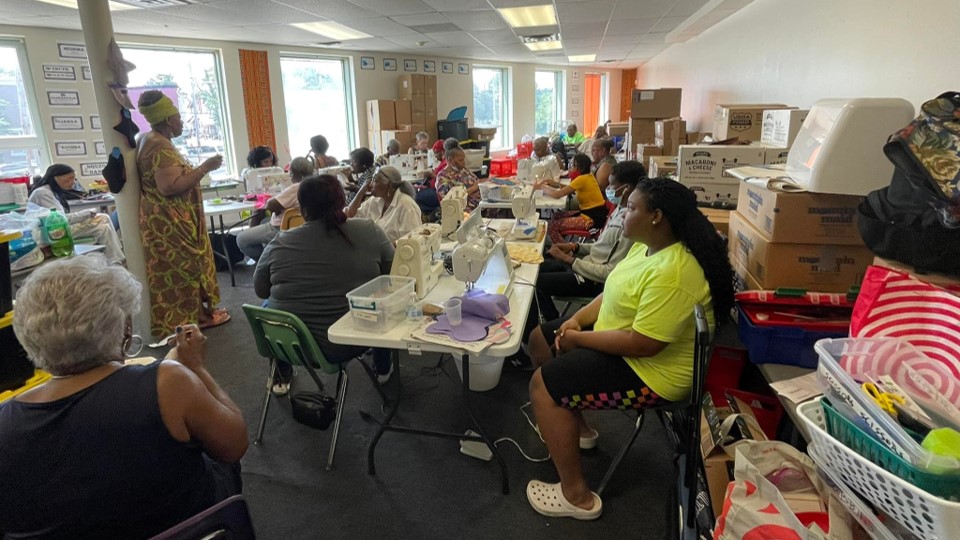
https://youtu.be/yUlHmzLz1R8Ujima Programs 2022
Worship: On-going
The first thing established by Ujima Friends Peace Center was unprogrammed worship every Sunday at 2:00 p.m. and business meetings conducted in the manner of Friends. Since that time, the Ujima Friends Peace Center has grown as an intergenerational faith community. Ujima Friends meet every Sunday at 2:00 pm to worship together and bear witness to the vitality of their Quaker faith and Africana culture. This growing intergenerational community provides a culturally synchronistic space for spiritual nurture and social activism of its members.
Since the of COVID 19 pandemic Ujima worship has been virtual. The worship group decided to form a monthly meeting that met weekly online. This “meeting without borders” was formed in May of 2021 and became a separately incorporated entity in September of that year. A “Declaration of Community and Commitment was adopted, articulating the rationale and purpose of the meeting.
Grocery, Clothing, and Book Give A Way: (October 2017 – Present)
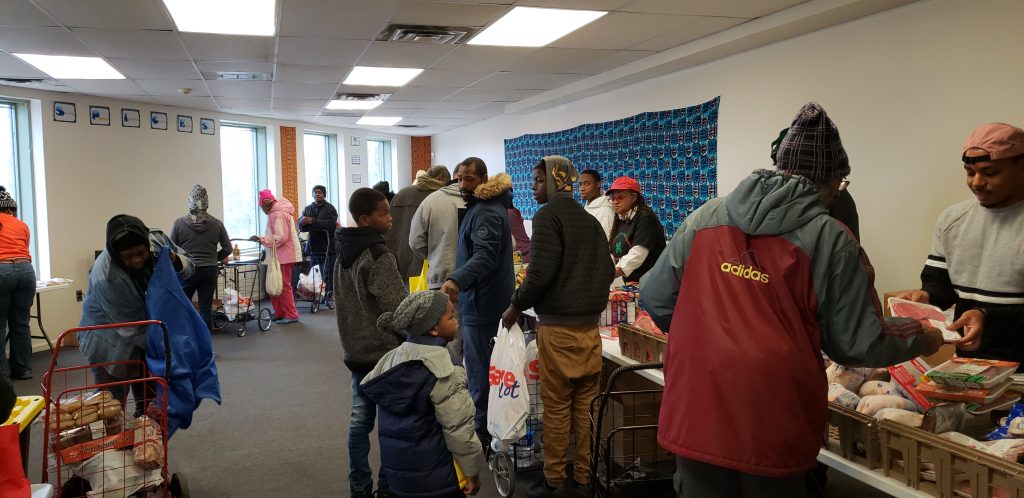
Each month since 2017, Ujima has provided groceries for approximately families in need in the North Philadelphia area. Beginning in 2020 we also distributed lightly used clothing and Covid protection items, like tests and masks. The program initially served the community once per month but has since expanded to provide food for nearly two hundred households on the second and last Saturdays of each month.
PanAfrican Sisterhood Health Initiative (PASHI) June 2019 – the Present
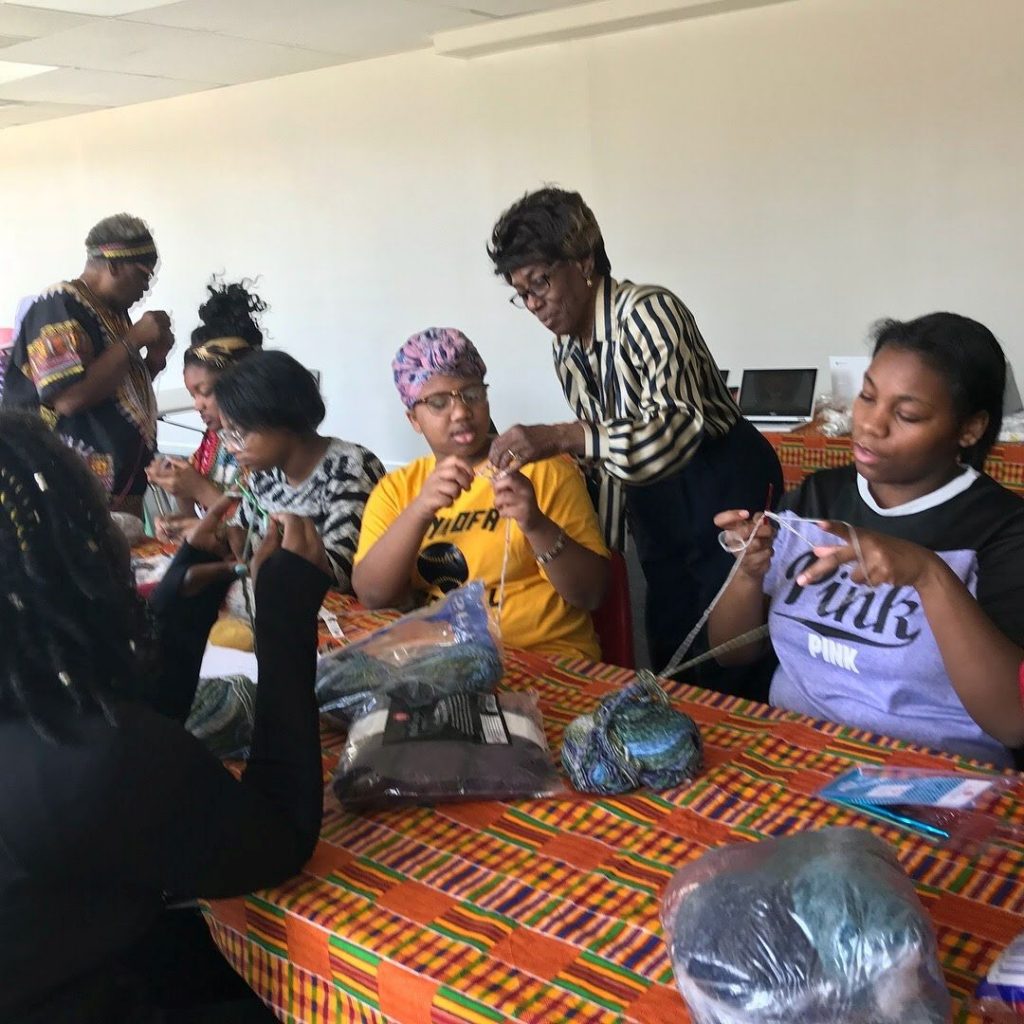
In 2019 members of the Peace Center began partnering with Sankofa Artisan Guild to make reusable environmentally friendly menstrual pads, pouches, and under garments for African girls’ whose educations are compromised due to “period poverty”. Sankofa Artisan Guild is led by a group of Black Women elders most of who are community workers, keepers of the culture, educators, activists, counselors and lovers of the arts. The Peace Center provides the space, sewing machines, and willing hearts and hands to this project.
One of the initial projects of the Center was to develop an approach to peacemaking and dispute resolution called the Mpatapo Peace Works curriculum. The Mpatapo Peace Works Curriculum is a holistic conflict transformation program developed by Quakers of African Descent to address various forms of state sanctioned and/or violence in the community through trauma informed conflict transformation training and the cultivation of the healing arts.
Mpatapo and the Servant Leadership Youth Development (June 2017 – present)
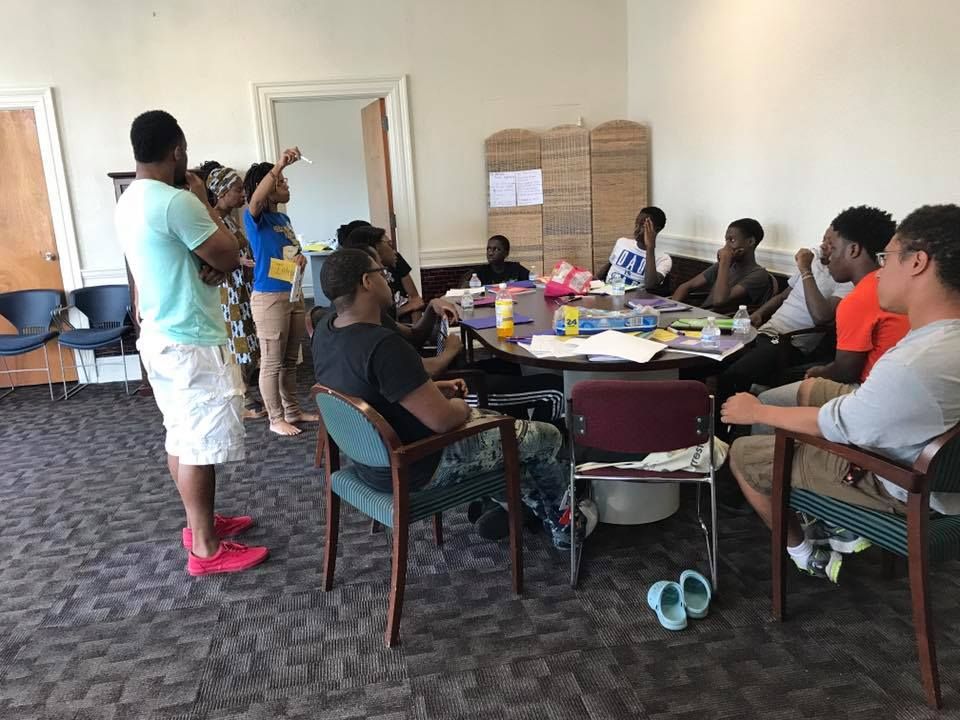
The Mpatapo Peace Works curriculum is rooted in Quaker testimonies and African Centered values, rituals, and cultural referents. It is designed to foster personal, communal and societal capacity for building, keeping, making, and extending peace in ourselves, families, communities, and world. It utilizes activities from the Quaker Alternative to Violence Program curriculum, the Pillars of Peace curriculum, Philadelphia Freedom Schools curriculum and various other trauma informed and restorative justice curricula. The Ujima Friends Peace Center has already successfully used the Mpatapo curriculum in a city-wide program involving 150 children from several “freedom schools” around the city.
Freedom School: Summer of 2017,18, and 19 Prayerfully to return in 2021
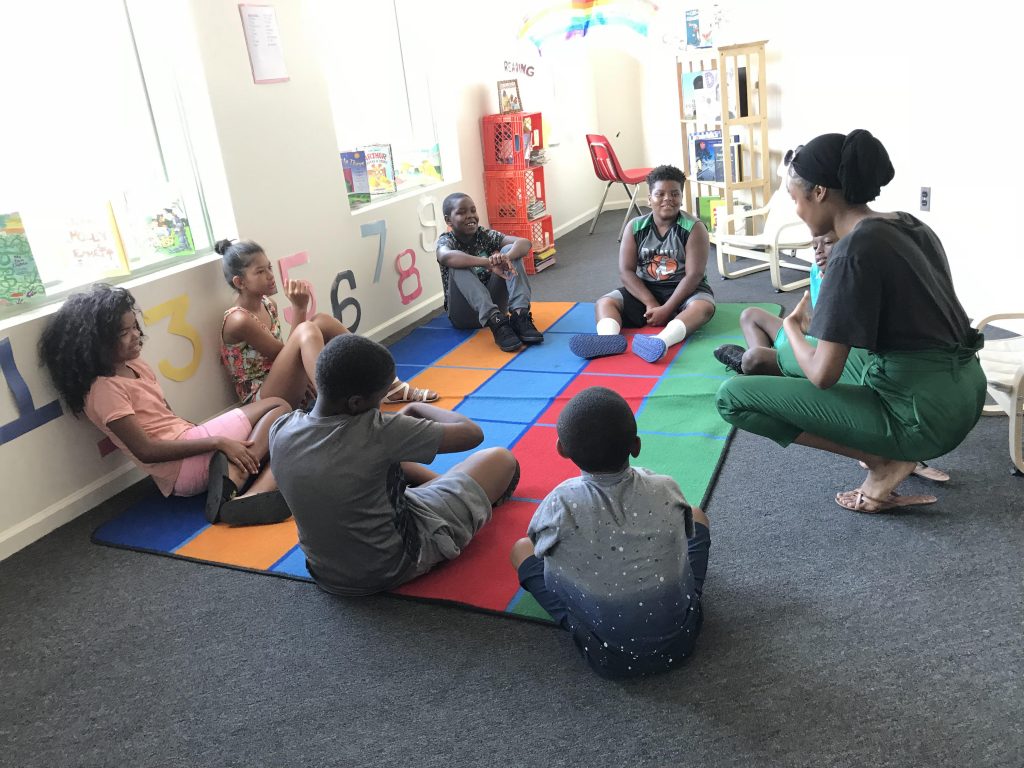
For the past three summers, Ujima has run an Africana social justice program based on both the Freedom School curriculum and the Mpatapo curriculum. Each summer young people from (k-12) have been engaged in a chain mentoring program, where college students’ mentor high school students and high school students teach elementary school students. All are engaged in social justice text from African American authors. Each year the summer culminates in a social justice project based on community concerns as captured through community surveying and focus group meetings conducted by the young people. The social action projects have included housing insecurity as violence, gun violence, second chances for returning citizens, and environmental racism related to lead poisoning. The summer we sadly are unable to operate our freedom school from the Peace Center due to COVID-19 but have been in the community distributing books for the children to read.
Conflict Resolution and Community Safe Space: On-going
The Peace Center has been used as the site by various community organizations working on a range of concerns including conflict resolution and family reconciliation, community development, organizational coalition building, youth development and mentoring, environmental justice, and cultural celebrations
